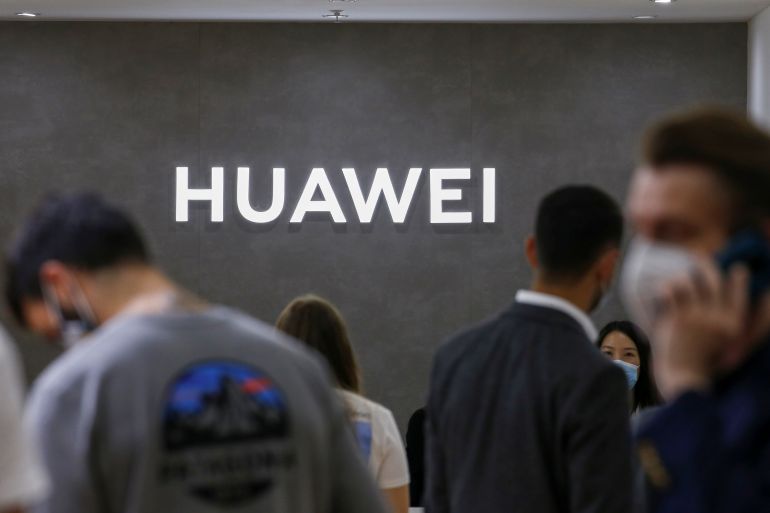US to earmark $1.9bn to replace Huawei, ZTE telecoms gear: Report
The $900bn virus relief bill reportedly includes funds to replace telecommunications network equipment that the US says poses a national security risk.

US policymakers will back a $1.9bn programme to remove telecommunications network equipment that the US government says could threaten national security as part of a $900bn COVID-19 relief bill, two sources briefed on the matter told the Reuters news agency.
Policymakers will also back $3.2bn for an emergency broadband benefit for low-income Americans, senior congressional aides confirmed.
Keep reading
list of 4 items‘Great challenges’: Huawei chairman says US sanctions are hurting
UK and Huawei: Proposed law could hit British telecoms firms
US Congress seals deal to provide $900bn in COVID aid
The COVID-19 relief bill, the second-largest economic stimulus in US history following a $2.3 trillion aid bill passed in March, invests $7bn to increase access to broadband, House Speaker Nancy Pelosi and Senate Democratic Leader Chuck Schumer said in a statement. The low-income programme, they said, will “help millions of students, families and unemployed workers afford the broadband they need during the pandemic”.
The Federal Communications Commission (FCC) said in June it had formally designated China’s Huawei Technologies Co and ZTE Corp as threats, a declaration that bars US firms from tapping an $8.3bn government fund to buy equipment from the companies.
Earlier this month, the FCC finalised rules that require carriers with ZTE or Huawei equipment to “rip and replace” that equipment but is awaiting funding from Congress.
Huawei said earlier this month it was disappointed in the FCC’s decision “to force removal of our products from telecommunications networks. This overreach puts US citizens at risk in the largely underserved rural areas – during a pandemic – when reliable communication is essential”.
Rip and replace
The bill “establishes a temporary, emergency broadband benefit program at the FCC to help low-income Americans, including those economically challenged by the COVID-19 pandemic, get connected or remain connected to broadband,” according to a fact sheet seen by Reuters.
One of the sources also said the programme will supply a $50 monthly subsidy to qualifying households “to help them afford broadband service and an internet-connected device.”
The bill also expands eligibility for the rip-and-replace reimbursement programme to communications providers with 10 million subscribers or less but prioritises reimbursement for providers with two million subscribers or less, the source said, citing a draft fact sheet.
The bill will include $285m for connecting minority communities and will establish an Office of Minority Broadband Initiatives at the National Telecommunications and Information Administration (NTIA).
It will also offer funding to “support minority-serving education institutions, including when they partner with minority-owned businesses, to expand broadband capacity and use at the school and in the surrounding community,” the fact sheet seen by Reuters said.
It also includes about $250m for additional FCC support for tele-health and $1bn for an NTIA tribal broadband connectivity grant programme.
There is a separate $300m NTIA grant scheme to promote broadband expansion to Americans who have less connectivity, especially in rural areas, and $65m for better broadband maps.
That fully funds the FCC’s development of new, more accurate broadband availability maps to help the agency better target government funding for broadband deployment.
On Friday, the US Department of Commerce announced it is blacklisting Semiconductor Manufacturing International Corp (SMIC), drone maker SZ DJI Technology Co and more than 60 other Chinese companies “to protect US national security”.
Companies including Huawei and SMIC have been caught in the middle of worsening tensions between the world’s two largest economies, which have clashed on issues from trade to the pandemic.